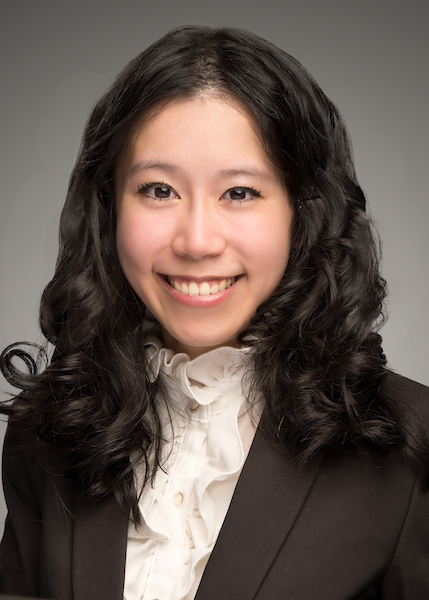
Medical student Jessica Luc is a finalist for a 2017 ASTech Award.
Jessica Luc - Fourth-year medical student and 2017 ASTech Awards Finalist
What activities led to your ASTech Award nomination, and how did you get started?
It is such an honor and privilege to be nominated for the ASTech Award. The activities that got me nominated include my work in four interrelated areas: research from bench to bedside, education from books to clinical practice, humanism in medicine to keep the care in health care and technology development.
On the research front, my work has been focused on ex vivo organ perfusion technology that preserves, resuscitates and repairs damaged donor organs with the goal of improving the donor pool for transplantation. As well, I have an interest in the evaluation of cardiothoracic surgical outcomes, mechanical circulatory support and artificial heart technology development.
On the education front, targeting the issue of organ donation and gaps in medical school education regarding this important topic, I am a collaborator on a nationwide effort that has developed and piloted an evidence-based organ donation curriculum tailored to individual province donation guidelines to medical schools across Canada.
I am interested in examining ways to improve the learning process and am involved in cardiothoracic surgical education research examining the effects of study habits and cramming on thoracic surgery in-training exam scores. We are also conducting a prospective multi-institutional education study evaluating the effectiveness of a cardiothoracic surgery debate-style journal as compared to traditional journal clubs for trainees to acquire knowledge and apply it to their clinical practice.
On the humanism in medicine front, I am the host of a Humanism in Medicine Film Festival, and I established a temporary boutique store for homeless youth, co-founded a non-profit organization called Be Your Own Kind of Beautiful that is dedicated to raising awareness about eating disorders and deconstructing society's perceptions of beauty. We established the first Fashion Show of All Sizes as a campaign for eating-disorder prevention, Beauty vs. Adversity photoshoots to highlight the extreme nature of fashion editorials, and hosted the first Symposium on Eating Disorders at the U of A.
On the technology development front, I am part of AlbertaSat, which is an interdisciplinary team at the U of A that has constructed a nanosatellite that was launched into space by NASA in May 2017 to conduct space research. Our team has since been constructing an Open Source Cubesat platform in which we have submitted files for our On Board Computer, Athena, to form an open-source repository to improve the design of nanosatellites through open-source collaboration.
I have also been working with a medical makers community which has been working on producing 3-D printable medical and surgical supplies for use in low-resource settings. My dream would be to one day be able to apply my 3-D printing and coding skills to construct artificial personalized organs for transplantation and education.
Why are you passionate about technology and innovation?
Life is a dynamic process and the only certainty is change.
Our world has seen such significant advancement; the inquiring minds, those who are continually asking the questions "why?" and "is there a better way to do what we are doing now?" are the ones who have brought our society to a higher level.
In the medical field, improved diagnostic and therapeutic options have greatly improved the life expectancy and quality of life of patients. I believe that we have not accomplished everything that needs to be accomplished and that in fact, we are only at the beginning. Whatever we are doing, there must be a better way to do it. If there is a better solution, we should find it. As the physicians of tomorrow, it is important to be at the forefront of taking advantage of new platforms that have been developed in the 21st century and moving those ideas to the next step.
Do you plan to incorporate these activities into your career long-term?
I believe that being a good physician is not just about medical knowledge. It also means being a professional, a good communicator, a good collaborator, a good manager, a health advocate, a scholar and an educator. I aspire to become a surgeon, clinician-scientist, educator and innovator and I am working towards achieving that goal. My lifelong dream is to contribute to the advancement of the medical and surgical field and to one day help and educate and mentor others as I have been mentored.
Why do you think innovation is important in medicine?
Medicine is the greatest profession that I could ever hope to be part of. We can participate in discovery and accelerating progress, but what's most important is that we can actually help people. It is essential to recognize that to achieve anything and innovate, one must be willing to accept risk and failure. From each failure you learn a little something and each one takes you in a new direction. So I believe that if you are not trying new things and if you are not failing, you are probably not trying hard enough. It is all about "trying again, failing again, failing better" as writer Samuel Beckett said. Setbacks are simply set-ups for comebacks and opportunities to learn and grow.
I believe that innovation is important and will always be important in medicine. When examining the history of medicine, we truly stand on the shoulders of giants who have changed the way medicine is practiced and have given the gift of hope and life to so many patients. As internationally renowned cardiac surgeon Toby Cosgrove says, "what can be conceived, can be created." As a medical student and future medical profession, I am highly motivated to contribute to some aspect of the conception and creation process, and innovate to work towards making the future better for all by tackling the problems that are apparent in our society one step at a time.